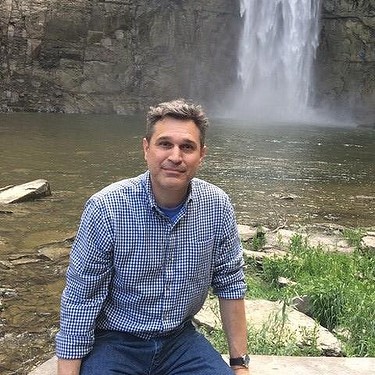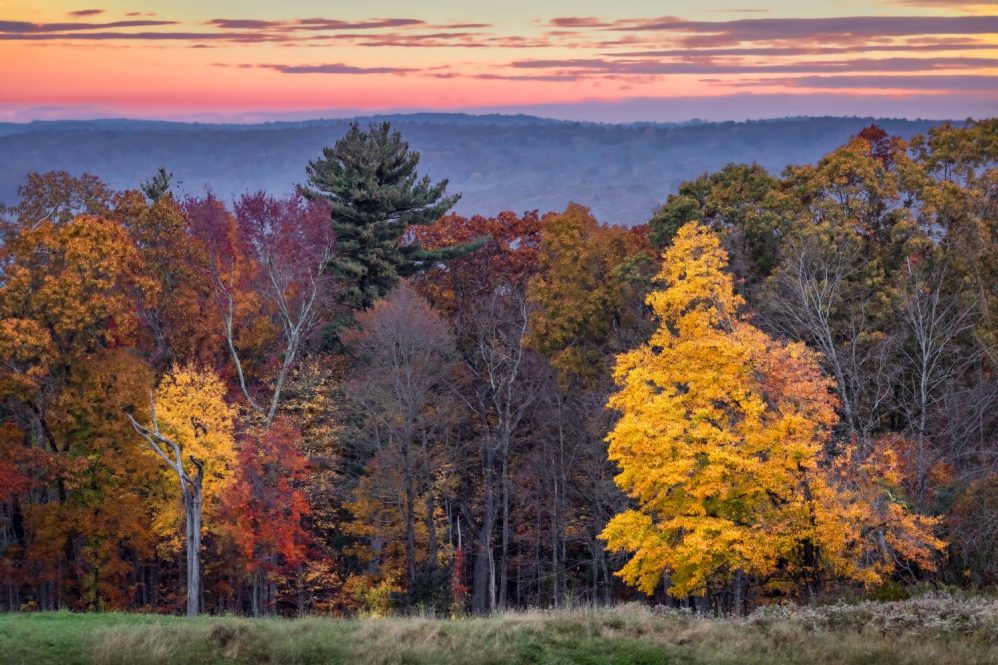
UConn Researchers Closer to Near Real-Time Disaster Monitoring
Dr. Zhe Zhu and the Global Environmental Remote Sensing Laboratory (GERS) at UConn have developed a groundbreaking method to assess land disturbances, like disasters, in near real-time using satellite data and machine learning. Inspired by biomedical research methods, their approach, published in Remote Sensing of Environment, cuts assessment lag time drastically.
By leveraging decades of satellite data, including Landsat, and collaborating with international scientists, they've pioneered a technique that can detect changes within four days, compared to the previous month-long process. This method, using NASA Harmonized Landsat and Sentinel-2 data, streamlines data processing and allows for quicker analysis.
Their innovative approach combines empirical knowledge with machine learning algorithms to distinguish early disturbance signals from noise in satellite imagery. This method not only improves the accuracy of detection but also significantly reduces processing time.
Read More About UConn Researchers Closer to Near Real-Time Disaster Monitoring

Shoreline Restoration Project Comes Alive Through UConn’s Eco-Digital Storytellers Program
The Connecticut shoreline faces significant threats from rising sea levels, potentially losing thousands of acres of land by 2080. To address this, a program called Eco-Digital Storytellers, supported by a grant from the National Science Foundation, connects Connecticut high schools with UConn to create digital-media environmental projects. Led by NRE faculty member Laura Cisneros, the program engages students in addressing local environmental challenges. Students are collaborating with UConn to spotlight the Shoreline Resilience and Eco-Restoration Project, aiming to restore coastal habitats and raise awareness.
Read more about this shoreline restoration project at UConn Today

The Many Lives of the UConn Forest
The UConn Forest serves as a vital hub for research, education, and community outreach. Led by Professor Robert Fahey, ongoing projects aim to understand and enhance ecosystem resilience, such as studying the canopy's response to disturbances using advanced computer modeling and field experiments. Collaborating with Assistant Professor James Knighton, Fahey also investigates the impact of tree species loss on ecosystem functioning. Moreover, the forest provides hands-on learning opportunities for students, like dendrology and forest management classes led by Associate Extension Professor Thomas Worthley. These classes engage students in practical projects, such as creating habitats for ground-nesting birds and managing forest areas for sustainability. Beyond academia, Worthley's Extension work shares forest management practices with the public and woodland owners, highlighting the forest's diverse benefits and its importance in fostering sustainable landscapes.
Read more about the many lives of the UConn Forest
Five Faculty Named Highly Cited Researchers
Zhe Zhu, an associate professor in the NRE department at the University of Connecticut, has been recognized for the fourth consecutive year as one of the world's most highly cited researchers. This prestigious acknowledgment comes from Clarivate and the Web of Science index, which identify individuals with significant influence in their research fields. Zhu specializes in remote sensing within the Department of Natural Resources and the Environment. The recognition is based on the high citation rates of his research papers over the past decade, demonstrating his substantial impact in the scientific community. This acknowledgment highlights Zhu's consistent contributions to advancing knowledge in his field and underscores the University of Connecticut's strength in fostering impactful research endeavors.
Read more about the Five Faculty Named Highly Cited Researchers
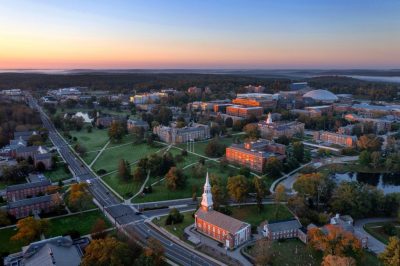
Extension Educators Launch School-Based Green Infrastructure Initiative
UConn Extension team, including Nicole Freidenfelds, Michael Dietz, and Laura Cisneros, got a $100,000 grant to teach communities about stormwater management. They're partnering with schools to create projects like rain gardens, involving students. Their goal is to raise environmental awareness, especially in underserved areas, and inspire future environmental leaders.
Read More about theExtension Educators Launch School-Based Green Infrastructure Initiative
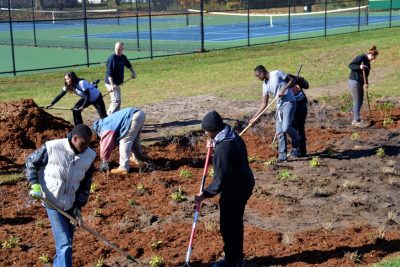
Thermal Refuges Help Trout Beat the Heat in Hot Weather
Jason Vokoun, head of UConn's Department of Natural Resources and the Environment, along with Ph.D. student Christopher Sullivan, is studying how trout survive in hot water by seeking thermal refuges along the Housatonic River. Their research, published in Ecosphere, reveals that not all refuges are the same. The ideal refuge is large, deep, and significantly cooler than the surrounding water. Using underwater cameras, they observed high fish abundance in these refuges during heatwaves. However, fish frequently leave to find food in the warmer mainstem river. Another study published in Ecology and Evolution examines terrestrial predators visiting the refuges, including humans. Despite some instances of predation, the refuges remain crucial for trout survival. These findings emphasize the importance of protecting thermal refuges amidst climate change for the conservation of fish populations.
Read More about how Thermal Refuges Help Trout Beat the Heat in Hot Weather
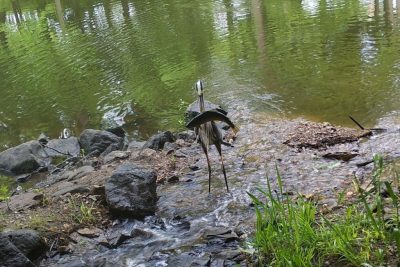
Jason Vokoun Appointed Head, Department of Natural Resources and the Environment
This past August, after serving as interim head in the Department of Natural Resources and the Environment since May of 2017, Jason Vokoun was appointed department head. He was also promoted to full professor and director of the interdisciplinary environmental sciences major. “It has been an eventful year for me professionally,” Vokoun says. “I’m humbled to be able to tap into my passion to help people succeed. One of my favorite things about being a professor has always been to work with students and help them find a path to their career. That was always the thing that gave me the most joy. I find in being department head that I am able to do similar things, but now across broader networks of people. It has been the great surprise of this position and provides me a lot of personal satisfaction.” Read more
